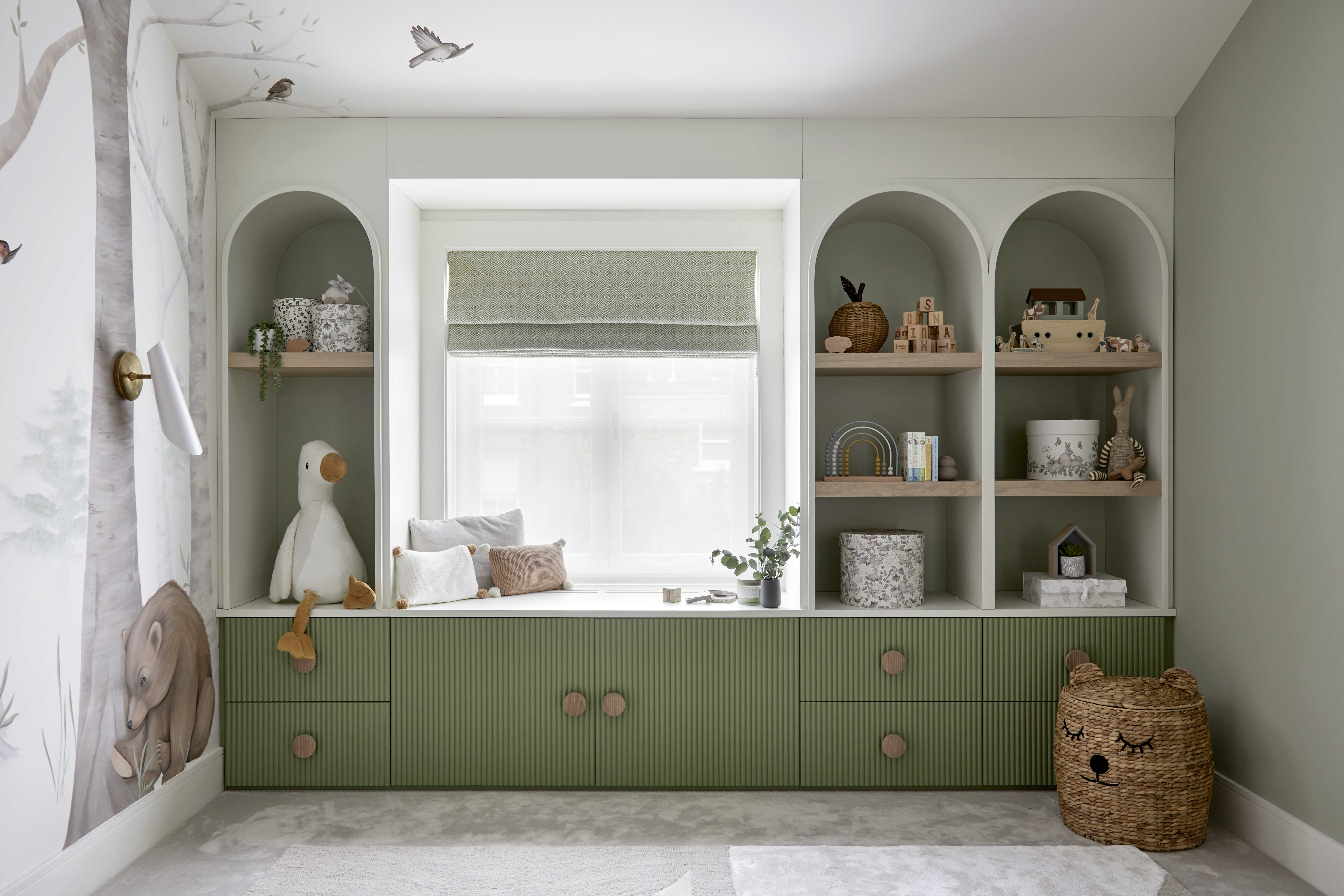
Forget pink or blue, it's green that we think is the perfect color for decorating a kid's room. Green kid's rooms are a good choice for helping them unwind before bedtime, known to promote concentration and this color is also associated with balance and harmony — a great all-rounder.
It's also colorful, but can, at times, feel like a neutral, so you may just get something a bit more chic than your standard kid's room color scheme.
With countless shades to choose from, green is the ideal color to introduce to your kid’s bedroom and will exude the feeling of the wilderness while keeping the ambiance calm and tranquil. We found 5 examples that prove it.
1. Color Drench a Kid's Room With Green
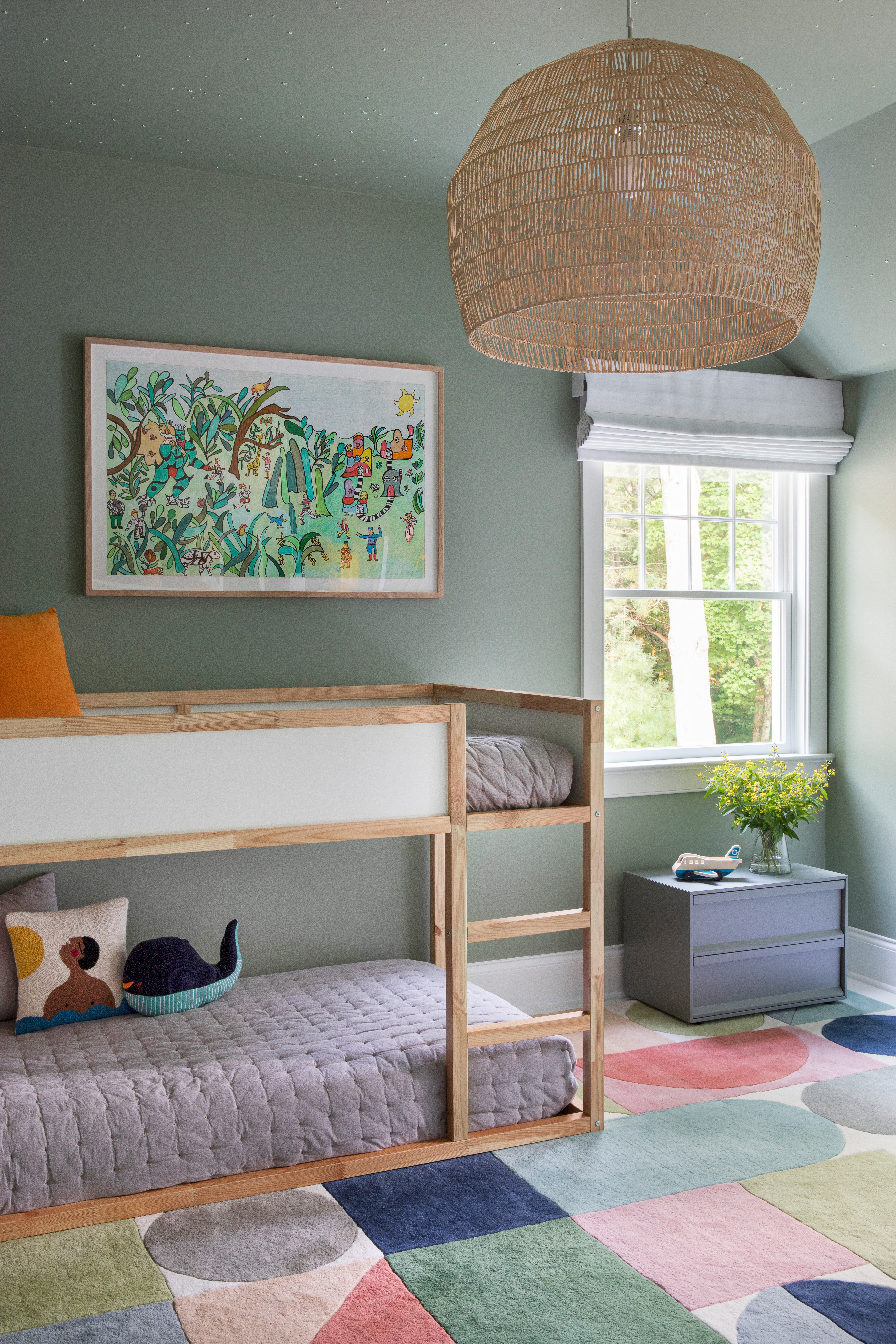
No matter the shade, color drenching a kid's bedroom is green will leave your little one feeling cozily enveloped in their safe space. A darker hue will make the space feel closer, providing a cocooning feel.
Light green can be seen as a neutral color choice, so it’s less obvious but the undertone is there working that hint of natural energy into a green bedroom. The lighter options will keep the space bright and open, working especially well when there is plenty of natural light.
Either way, once you’ve found the right shade, you can start looking for materials and colors that complement green, building up the layers and finishes you like.
2. Use a natural-inspired wallpaper
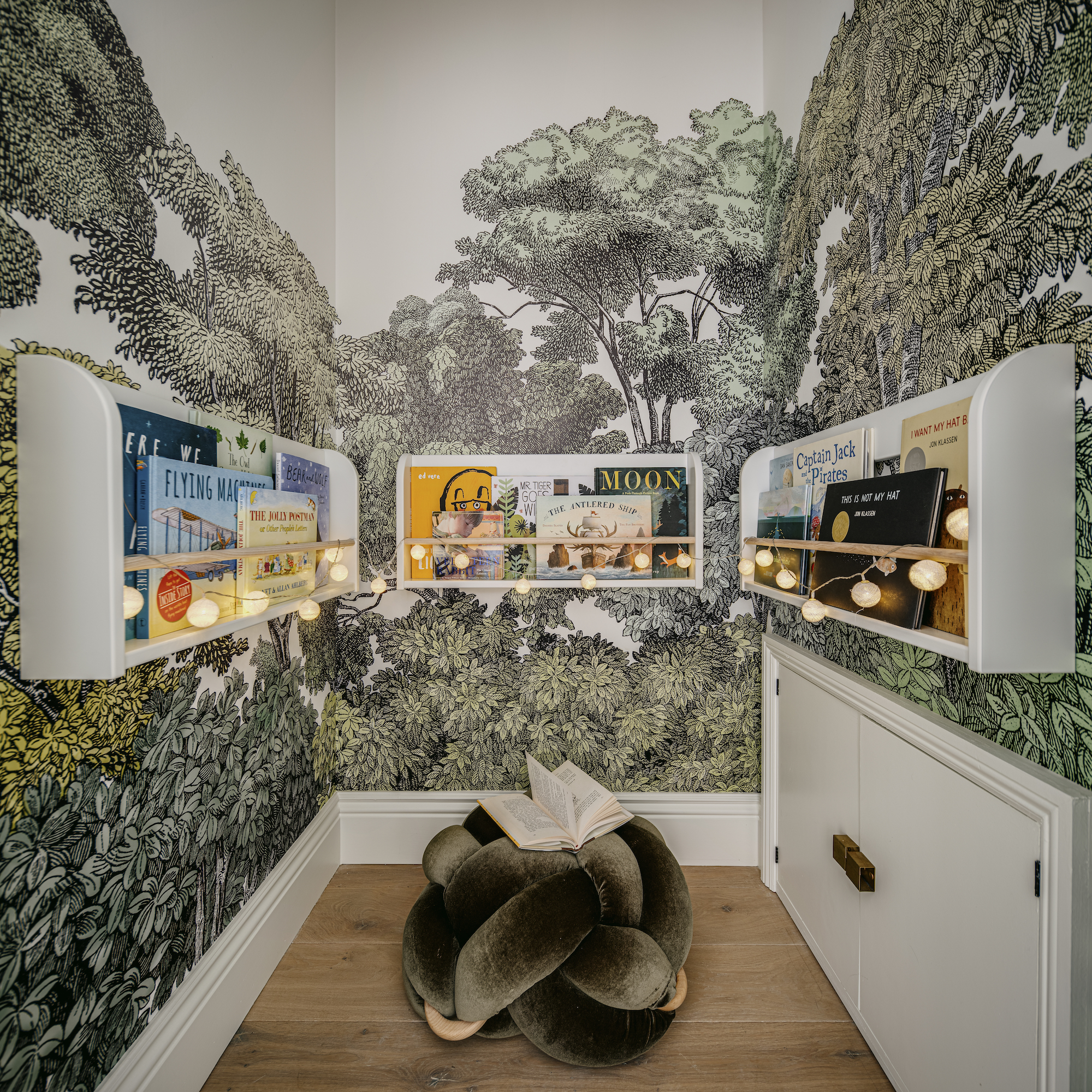
A wall mural can make a huge impact on a space, transporting you and your children to a place where adventure awaits, especially a quiet cozy spot like this reading nook, part of a larger green bedroom scheme.
"This walk-in closet (pictured) has been re-imagined into a private book nook lined with tree wallpaper and book ledges," interior designer Benni Amadi explains.
The forest-themed reading hideaway illuminated by a warm glow of trailing lights is the perfect solution to introducing that leafy green vibe, especially on those stay-at-home rainy days.
Price: $99.99
This charming nature scene wallpaper is great for a kid's room, but grown-up enough for older children too.
3. Use green as an accent
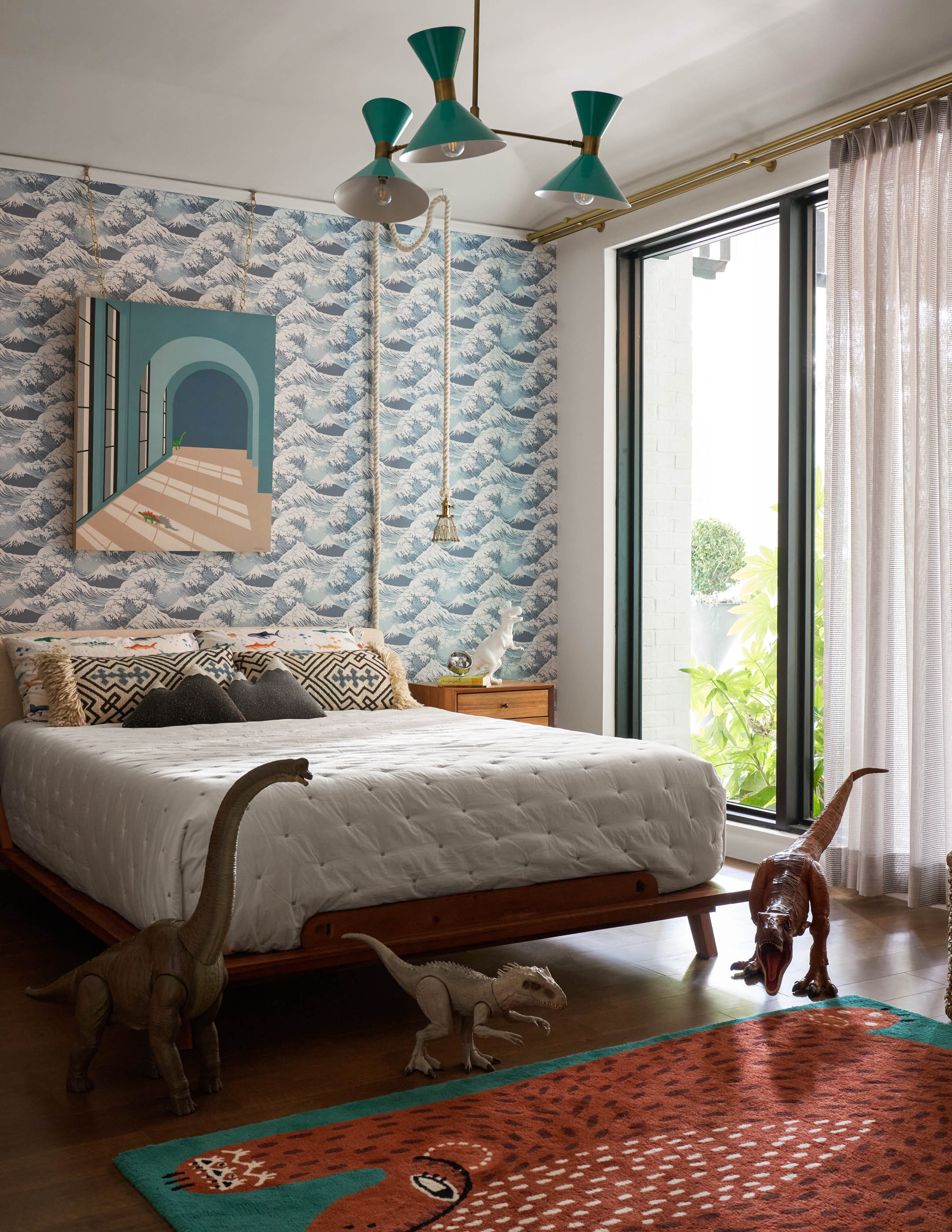
Adding green in unexpected ways can add great visual interest. It’s a strong accent color, and more punchy when you don’t expect the pops of green amongst the rest of the design. "It modernizes the space so much and allows for the child to grow with it as they get older," says Sara Malek Barney, founder of BANDD/DESIGN.
In this bedroom designed by Maestri Studio, a teal-y green is used for fun accents, without the entire walls needing to be painted this bold color, with more grown-up brown accents used as a color that goes with teal.
4. Mix green shades
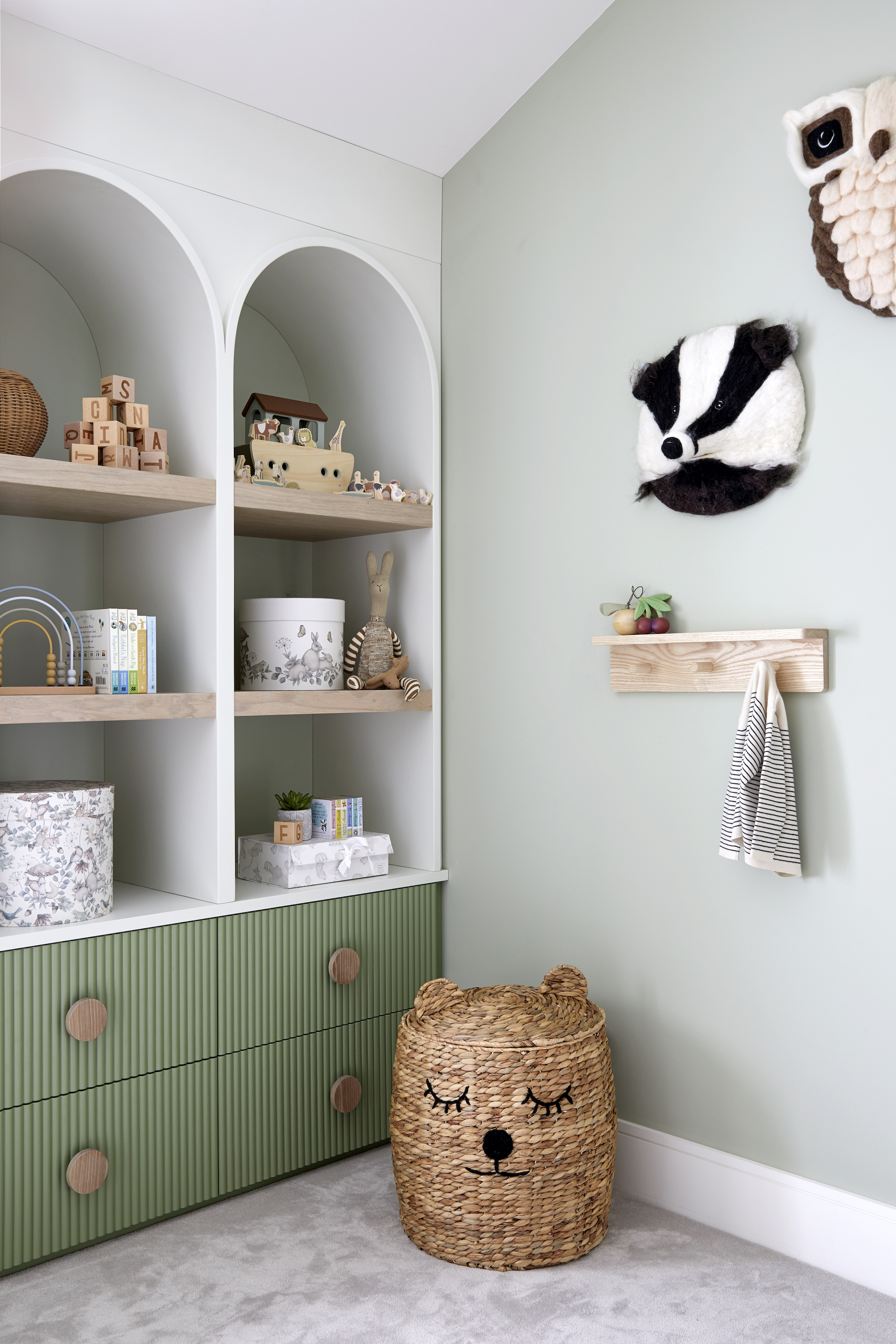
A variation of greens can work well in a kid’s room, and it goes beyond simply painting the walls. "Consider using green in elements like joinery, wardrobe fronts, and storage units to add a unique and visually appealing feature that can be easily updated in the future with a lick of paint," advises Joanna Landais, the founder of Eklektik Studio.
"Once the primary green shade is established, introduce complementary shades of green to infuse depth and character into the space while upholding the monochromatic aesthetic," she continues. "Opting for a gentle and relaxing green tone that complements neutral shades like soft beiges, creams, or light grays to achieve a harmonious balance in the room."
Adding accents to a green monochromatic color scheme, such as warm woodland browns or earthy tones, can enhance the nature-inspired feel without overwhelming the space.
However, remember to experiment with the different shades first, as finding the right tone is essential when it comes to striking a balance between tranquility and vibrancy. "It can go either way so never underestimate the true value of a sample pot," Joanna says.
Price: $149
This sage green shade makes for a great complement to darker, more dramatic green tones to soften the scheme.
5. A Focal Point
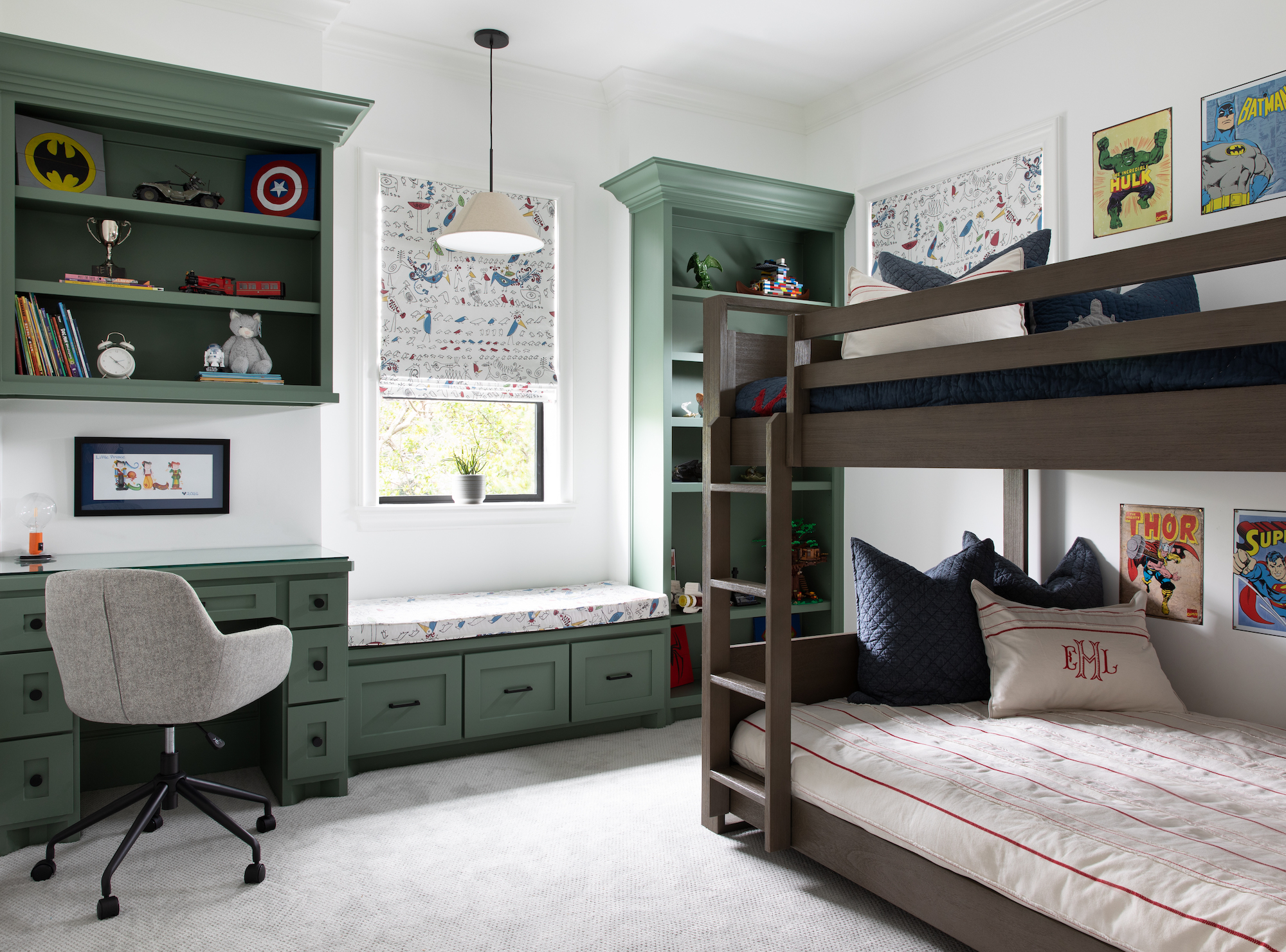
Green works so well in a kid's room because it can transition from newborn to adulthood, it still feels youthful while emanating a sense of sophistication, which is ideal as they grow up.
Using color as a focal point makes it easier to zone areas. For example, this built-in kid's desk idea, storage unit, and window seat setting is all in green, while everywhere else is white. This draws focus and sets the purpose for the area on that side of the room, keeping it separate from the bed space.
This kind of set up can work for a huge range of ages, providing a space for homework activities, reading and lounging and the all important storage and rather than trying to hide the storage away, painting it green makes it an attractive feature instead. Mary Patton, founder of Mary Patton Design recommends,: "You can also use it in window treatments and bedding to tie it all together."
Lastly, always keep in mind the existing fixtures and furnishings in the room such as flooring and window frames, as these are permanent features of the house. You’ll need to ensure that the green color of choice reflects the overall aesthetic of the home to create flow and balance throughout.
Green really is the ideal choice for a kid's room if you want a scheme that doesn't shy away from creativity, but that doesn't feel too childish, too.
Is green a good color for a kid's room?
"When it comes to picking tones for a kid's room, it's not entirely a bad idea to go for perceived 'grown-up colors' as they give the room longevity and help you avoid redecorating through the growing years," says Patrick O'Donnell, Farrow and Ball's brand ambassador.
In color psychology, green is related to nature, and is linked to peaceful, invigorating spaces, so green is an ideal color for a relaxed kid's room, where some other colors might bring too much energy to these spaces.







